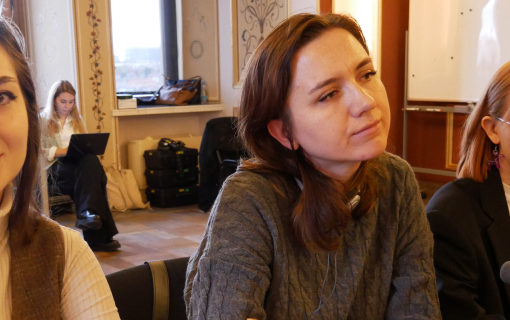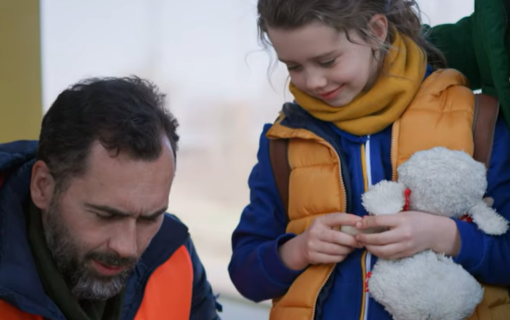Reflections on Guatemalan Women: A Q&A with Magistrate María Eugenia Villagrán de León
Magistrate María Eugenia Villagrán de León served as President of Guatemala’s Supreme Electoral Tribunal (TSE) from 2008-2014. The daughter of former Guatemalan Vice President Francisco Villagrán Kramer, she has seen firsthand the sacrifices made for good governance and the rule of law. As the TSE President she has focused on expanding these rights to all citizens.
In her last year with the TSE, she answers a few questions from IFES.
You have a history of transcending gender barriers and have made gender equality a centerpiece of your tenure. What would be your advice for young advocates drawn to gender equality?
Youth undertake challenges with a load of energy, positivism, idealism and enthusiasm that distinguishes them. Being elected President of the TSE, came at a time in my life when I needed to redouble my efforts, my energy, health and other conditions proper of my age. But I have never lost is the tenacity to get and achieve my goals. I would advise the new generations, especially women, to be tireless and persevering fighters about their goals and dreams.
What does it mean to you, as a woman, to have reached such a prominent and important position as TSE President in Guatemala? How can we continue to promote women in leadership roles?
To have reached the position as President of the TSE, a very important position and of unique significance, was for me the result of a lifetime in democracy. In the home that God gave me, my parents were the best examples. They gave me a beautiful family heritage, which I have cultivated through constant study and preparation that allowed me to stand out and be elected with the support of Guatemalan society. My six-year tenure at the TSE were intense but thanks to God, today I can say that every day I gave my best and I consider not to have failed in such a big task and commitment.
Guatemalan woman have started a fight for their promotion and recognition. I consider this just the beginning. Women can no longer be decoration items or simple observers; women must join [one] of the many organizations working for the promotion of women – and work tirelessly. However, there are still many challenges to overcome. Our country has, and will always have, prominent women but we need to spread their merits as an example for the generations that follow.
You worked closely with IFES during Guatemala's 2011 general elections. Have you seen a difference in women's advancement then compared to now?
During the 2011 electoral process, women’s participation was outstanding. Women had higher political participation and voter registration (51% compared to men at 49%). This fact was reflected in the voting results: 2,709578 women cast their ballots, compared to 2,345,605 men. The turnout reflects all the efforts implemented to encourage women (including rural women from different Mayan backgrounds and languages) and youth to vote.
Unfortunately, these participation rates are not reflected in political organization nominations: 43 percent of women participate in a political organization; 15 percent were nominated by their political organizations; and only 9 percent were elected. Compare this to 91 percent of elected men in office. Women have 20 seats in Congress, 236 Councilor positions at the municipal government level and 6 serve as Mayors. Another challenge for women is to permeate and reverse the position of women in hierarchical structures that are disadvantageous within political organizations and Guatemalan society.
IFES was a great contributor and friend of Guatemalan democracy, it showed its friendship and good advice throughout the elections period. However, improvement of political conditions for women requires more effort from Guatemalan citizens and more support for Guatemalan women.
As you finish you tenure, what do consider your fondest memory?
I have many fond memories. However, the excitement of the announcement of the results of a presidential election leaves great memories and shows all the efforts and teamwork were worth it.
In the future, how will you continue to encourage women and pave the way for equal opportunities?
Given the experience and awareness I have gained from working with rural women, indigenous and youth populations, I am very motivated to implement projects that I have envisioned during my time at the TSE.
I also want other women to join my fight to achieve parity through the proposed Political Parties and Elections Law reform. It is time to position ourselves and demonstrate that the capabilities and intelligence of both men and women in a balanced way benefit society.









